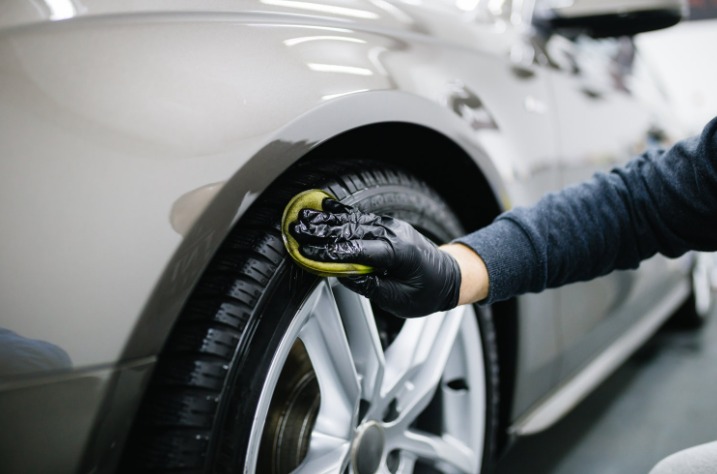Eco-Friendly Car Cleaning: Tips and Products

Keeping your car clean doesn’t have to come at the expense of the environment. Traditional car cleaning methods often involve harsh chemicals and excessive water usage, harming ecosystems and contributing to pollution. Fortunately, plenty of eco-friendly alternatives allow you to maintain your vehicle’s appearance while minimizing your environmental footprint. In this blog, we’ll explore practical tips and products for eco-friendly car cleaning.
Water Conservation: Wash Smart
One of the most significant environmental impacts of car washing is water usage. Traditional car washes can use up to 100 gallons of water per wash. To reduce water consumption, consider these tips:
- Waterless Car Wash Products: These innovative solutions allow you to clean your car without water. Products like Optimum No Rinse Wash & Shine and Chemical Guys EcoSmart-RU are designed to lift dirt and grime from your car’s surface, which can then be wiped away with a microfiber cloth. These products are not only eco-friendly but also save time and effort.
- Use a Bucket and Sponge: If you prefer a traditional wash, use a bucket and sponge method rather than a running hose. Fill one bucket with soapy water and another with clean water for rinsing your sponge. This method can significantly reduce water usage compared to using a hose.
- High-Pressure Washers: High-pressure washers can be more water-efficient than a standard hose. They use less water by delivering it at a higher pressure, making the cleaning process quicker and more effective.
Eco-Friendly Cleaning Products
Many commercial car cleaning products contain harmful chemicals that can end up in our waterways. Opt for biodegradable, non-toxic cleaners that are safe for both your car and the environment:
- Biodegradable Soaps: Look for car wash soaps that are labeled as biodegradable and phosphate-free. Brands like Simple Green and Mothers California Gold Car Wash are known for their eco-friendly formulations.
- Natural Cleaning Agents: Common household items like vinegar and baking soda can be effective car cleaners. Vinegar works well on glass and chrome, while baking soda can tackle tough stains on upholstery and carpets.
Proper Disposal of Waste
Proper disposal of car cleaning waste is crucial to prevent environmental contamination:
- Dispose of Wastewater Responsibly: Avoid washing your car on paved surfaces where runoff can enter storm drains. Instead, wash your car on grass or gravel, which can filter the water naturally. Alternatively, take your car to a commercial car wash that recycles its water.
- Recycle Containers: Ensure that empty containers of cleaning products are recycled according to local regulations. Many car care product containers are made from recyclable plastics.
Maintaining a Clean Car
Preventive measures can reduce the frequency of washes needed and minimize environmental impact:
- Regular Dusting and Wiping: Use a microfiber cloth to regularly dust and wipe down your car’s interior and exterior. This prevents dirt buildup and reduces the need for frequent, intensive cleaning.
- Waxing: Applying a coat of eco-friendly car wax can protect your car’s paint and make it easier to clean in the future. Natural waxes, such as those from Carnauba, are effective and biodegradable.
- Protective Mats: Use all-weather floor mats to protect your car’s interior from dirt and spills. These mats can be easily removed and cleaned, reducing the need for harsh interior cleaning chemicals.
Sustainable Detailing Services
If you prefer professional car detailing, look for services that prioritize sustainability. Many eco-friendly car detailers use steam cleaning, which requires minimal water and no chemicals. They may also offer services that use biodegradable products and practice water recycling.
Conclusion
Eco-friendly car cleaning is all about making smarter choices that benefit both your vehicle and the environment. By conserving water, using biodegradable products, and maintaining your car regularly, you can keep your vehicle looking great while minimizing your environmental impact. Embrace these green cleaning practices and contribute to a healthier planet, one wash at a time.
